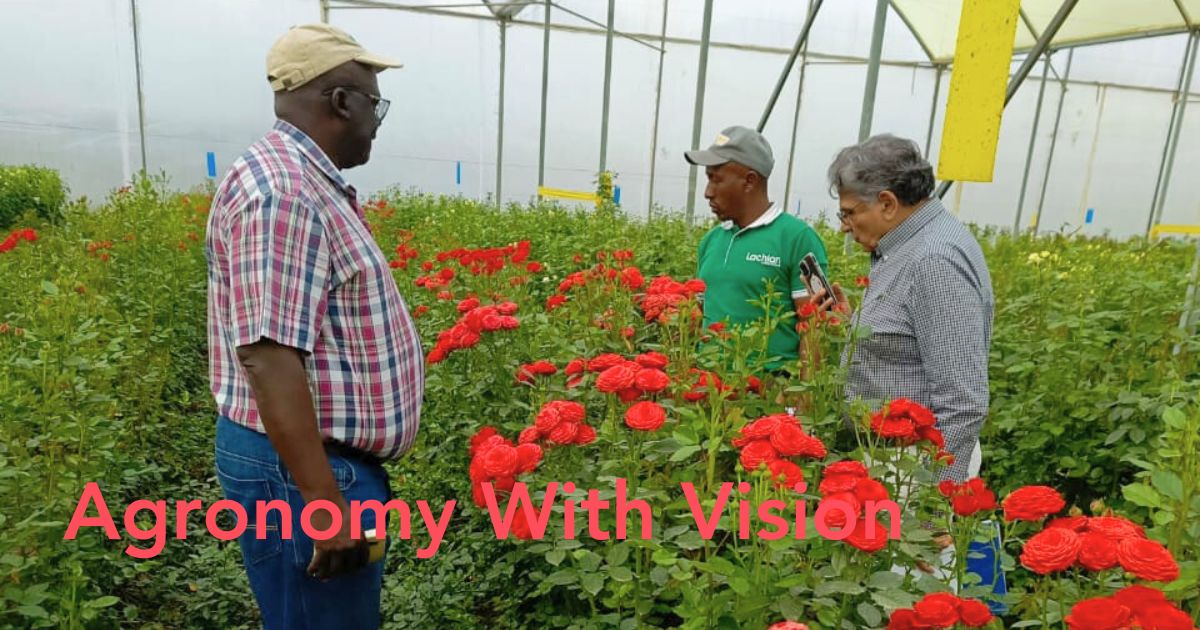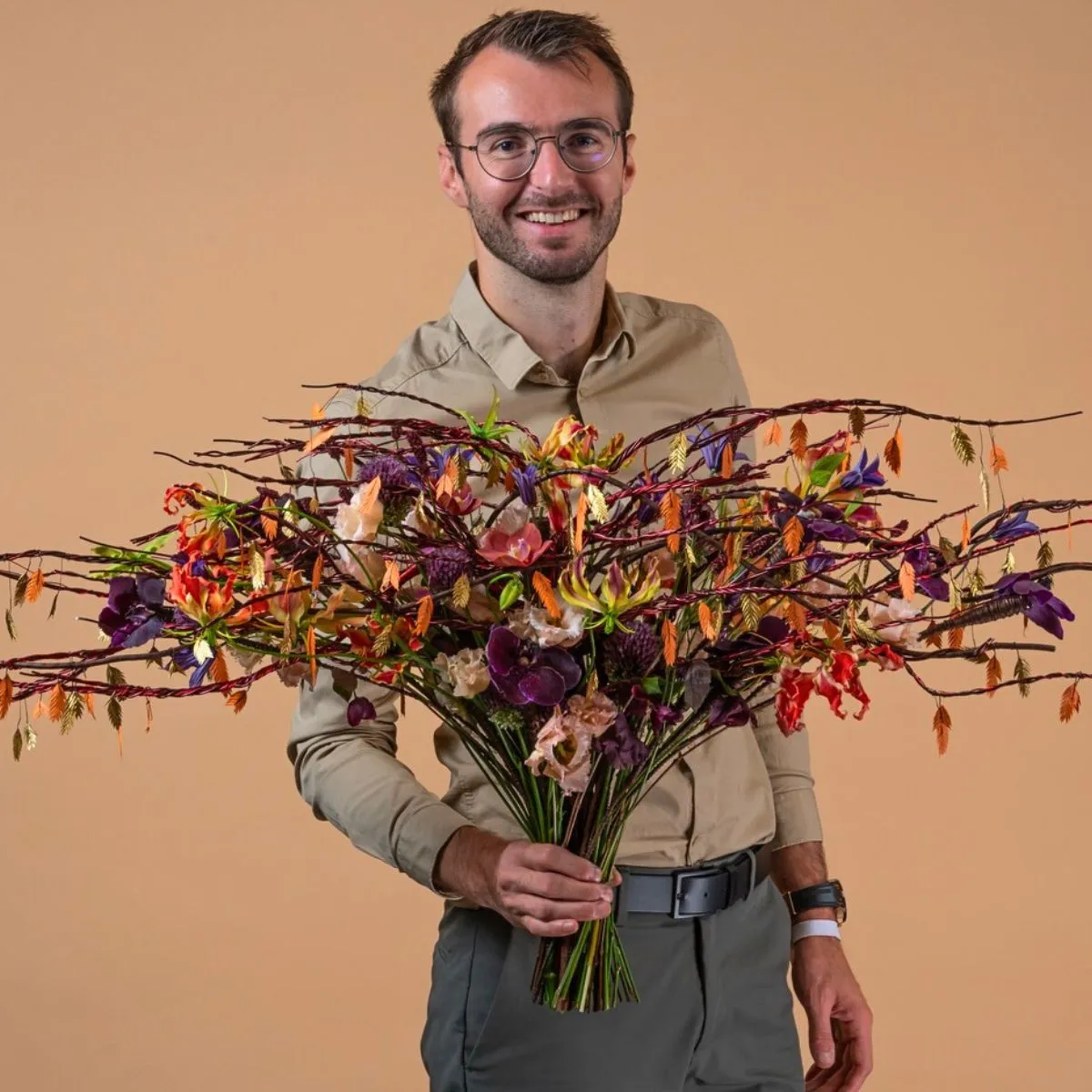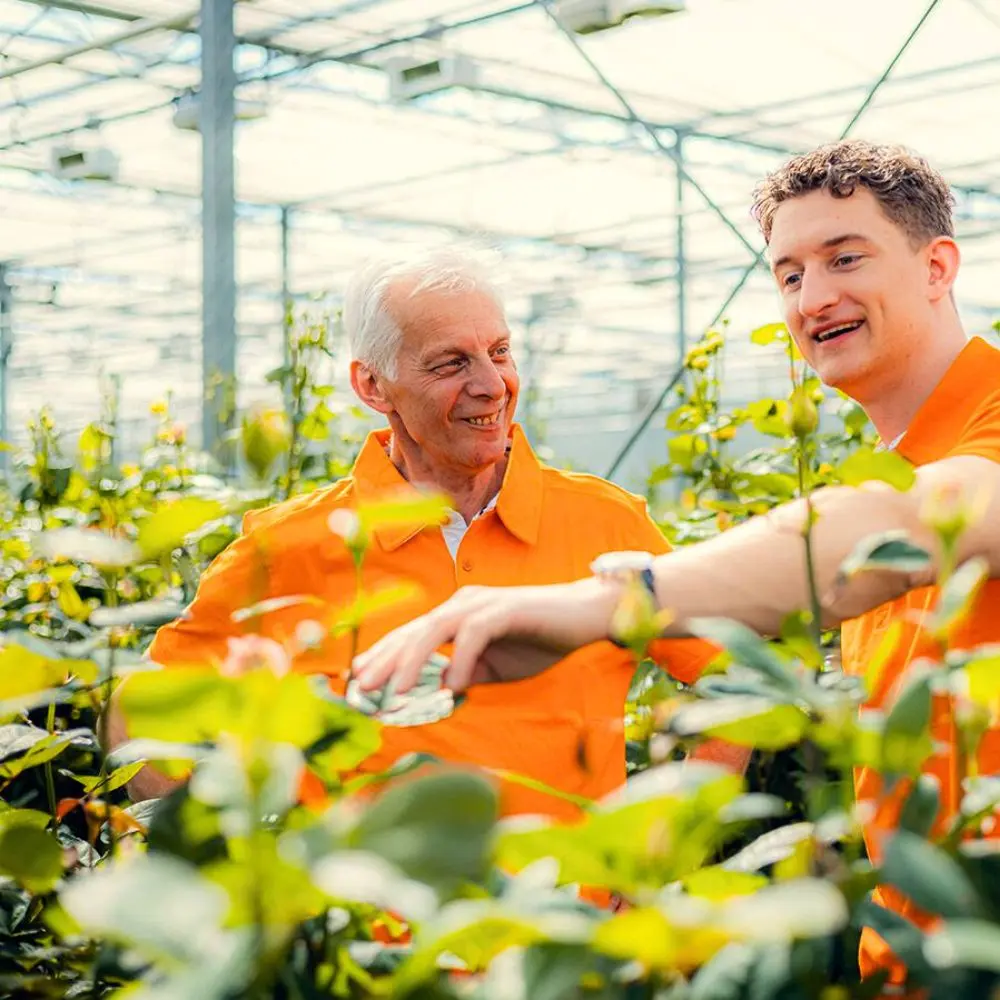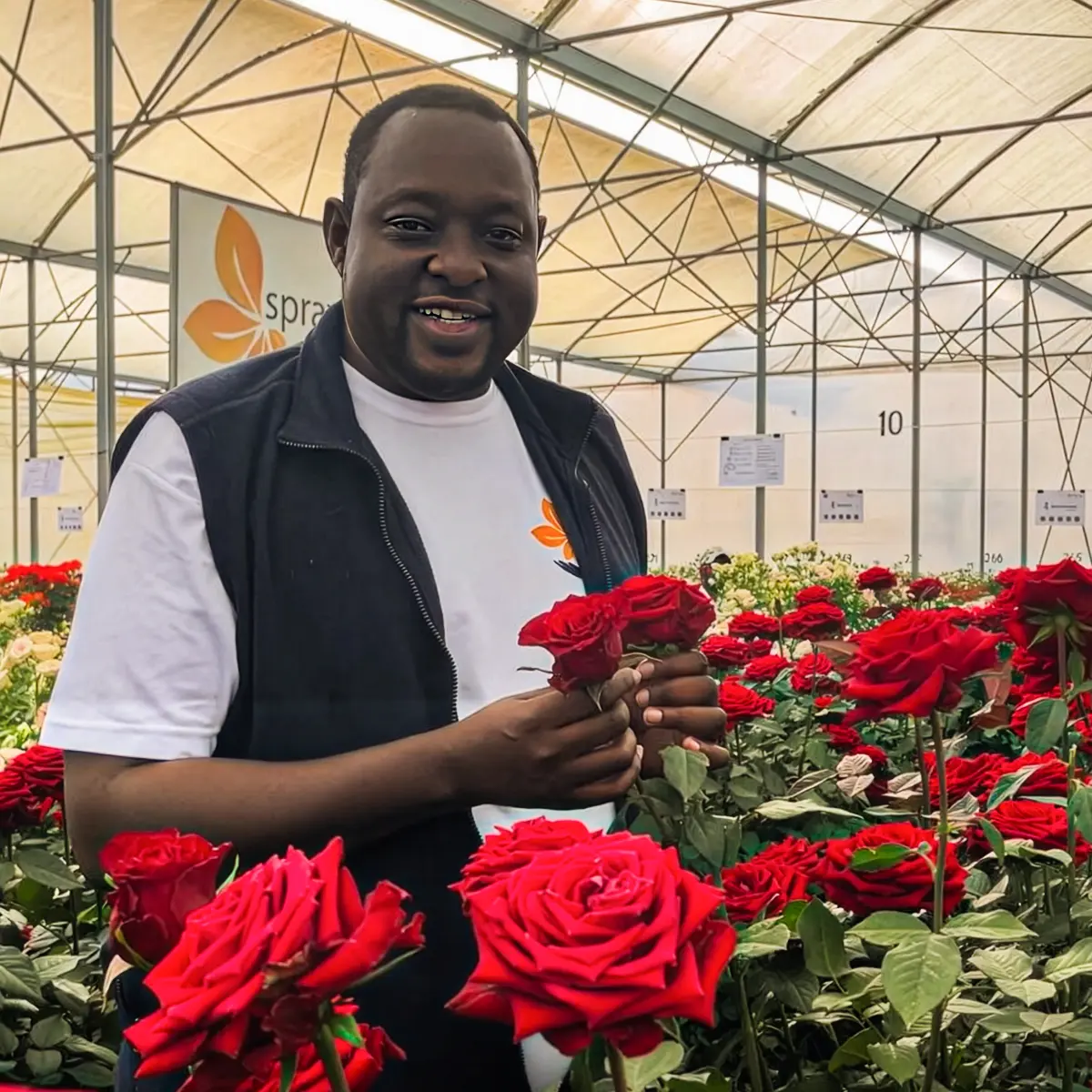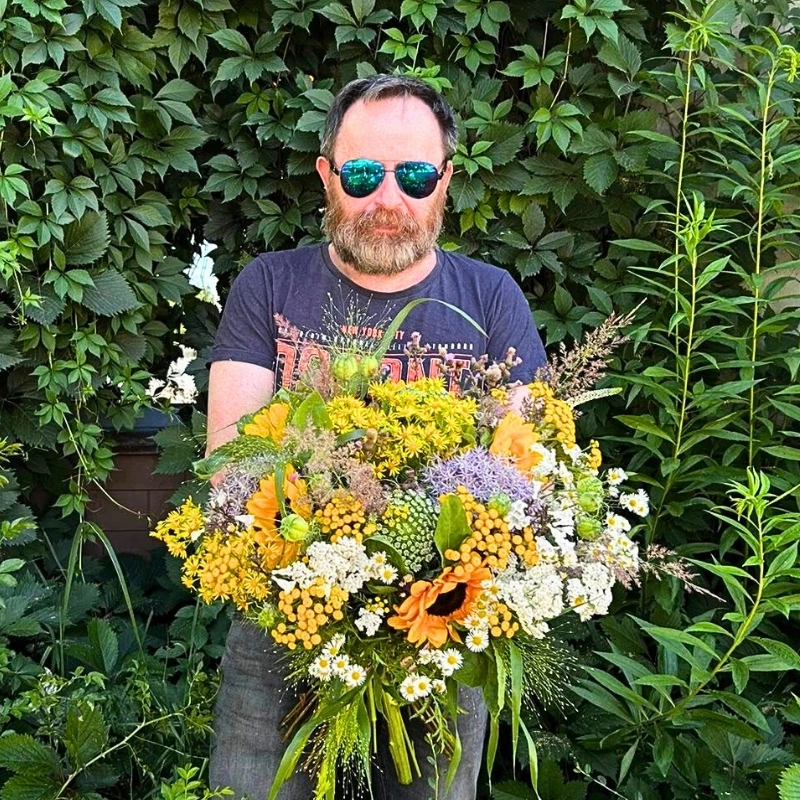Agriculture has always been more than just a job to Frederick Okinda; it's a calling that combines leadership, research, and a lifelong curiosity. His journey from his beginnings as an Egerton University horticulture student to his current position as a reputable agribusiness and technical manager demonstrates a consistent dedication to quality and creativity.
Frederick is notable today for his ability to translate field realities into strategic and data-driven decisions by bridging the gap between the greenhouse and the boardroom. One carefully considered step at a time, he continues to shape the development of East African agriculture through mentoring, valuation, and dissemination. Learn more about Fred on this week's 10 questions feature. Happy reading!
Question 1
For those who don’t know you, who are you, and what do you do?
"My name is Frederick Okinda, and I’m an agribusiness and technical manager based in Kenya. My journey from a horticulture student to a consultant and strategic leader has been shaped by resilience, curiosity, and a deep love for agriculture. I grew up in a close-knit family that valued hard work and education, and my early exposure to farming played a huge role in nurturing my passion for crop propagation and operational excellence.
My parents and siblings have always been my greatest supporters. Their encouragement gave me the drive to pursue a B.Sc. in Horticulture at Egerton University, where I laid the foundation for a career that now spans technical management, valuation consultancy, and board-level strategy. I’m married to Christine, and we’re blessed with three adult children — Doreen, Faith, and Abraham.
My path hasn’t been a straight line. I’ve built it through hands-on experience, continuous learning, and bold leadership. Over the years, I’ve managed cross-functional teams in floriculture and crop protection, led propagation and technical operations at NIRP International, and driven CRM and marketing initiatives for summer flower growers — blending agronomic insight with business acumen. My consultancy work, especially valuing commercial rose farms and preparing technical reports, has earned me a reputation for precision and strategic foresight.
Today, my role is multifaceted and high-impact:
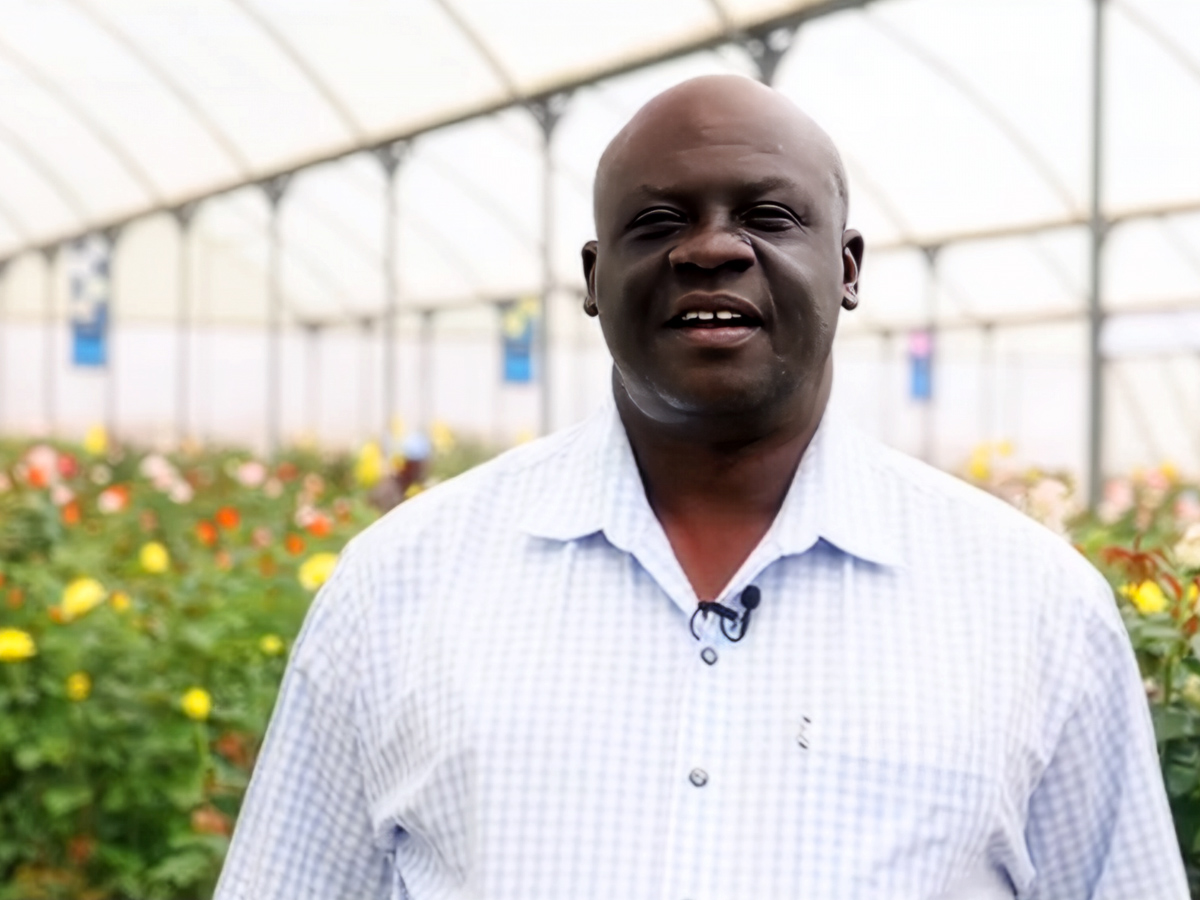
- Crop Propagation & Technical Oversight: I design and manage propagation strategies to ensure optimal varietal performance across diverse farm conditions.
- Operational Leadership: I oversee large teams, streamline logistics, and maintain compliance across farm operations and export systems.
- Strategic Planning & Reporting: I craft data-driven presentations and technical memos that help boards align varietal selection with market demand.
- Consultancy & Valuation: I produce legal documentation and valuation reports for agribusiness clients, guiding investments and operational pivots.
- Analytics & Innovation: With advanced Excel skills and growing expertise in Power BI, I use data intelligence to drive smarter decisions.
I don’t just manage farms — I help shape the future of agribusiness in East Africa and beyond. Whether it’s advising on varietal strategy or benchmarking pesticide trends, I approach every challenge with structure, clarity, and purpose."
Question 2
What is so special about your job?
"For me, agribusiness is more than a career — it’s a calling. I’m not just growing crops; I’m cultivating livelihoods, shaping ecosystems, and influencing boardroom decisions with data-backed insights. What makes my work special is the balance between science, strategy, and soul.
Every varietal choice, propagation method, or logistics decision affects thousands of stems, dozens of livelihoods, and entire export chains. That ripple effect keeps me grounded in purpose. I love that my role allows me to move between two worlds — presenting detailed performance dashboards one moment and walking the fields the next. That duality is energizing. I’m constantly trialing new propagation substrates, improving data systems, or integrating Power BI into performance reviews. Progress, to me, is a habit.
Agribusiness drives national growth. Kenya’s floriculture and horticulture sectors are vital export earners, and my decisions directly influence quality, compliance, and competitiveness. I also believe that data is the new fertilizer — analytics and scenario modeling help farms navigate droughts, market volatility, and regulatory change. And above all, leadership matters. I take pride in mentoring younger agronomists and helping them grow into confident industry professionals. This field definitely has its lighter moments. There have been times when my team and I spent hours chasing what we thought was a pest outbreak, only to find it was a misplaced sticky trap or a wandering grasshopper. Or moments when I’ve left a board presentation to inspect irrigation in the field and ended up splashed head-to-toe — I call that executive mud therapy. Even naming new flower varieties can be entertaining; some sound like pop stars or sci-fi heroes. I once joked about naming one “Boardroom Blush” after a tense valuation meeting.
I’m motivated by problem-solving, mentorship, and progress. Aligning varietal strategy with market demand, running a smooth propagation cycle, or presenting a technical memo that changes boardroom direction — those moments make every challenge worthwhile."
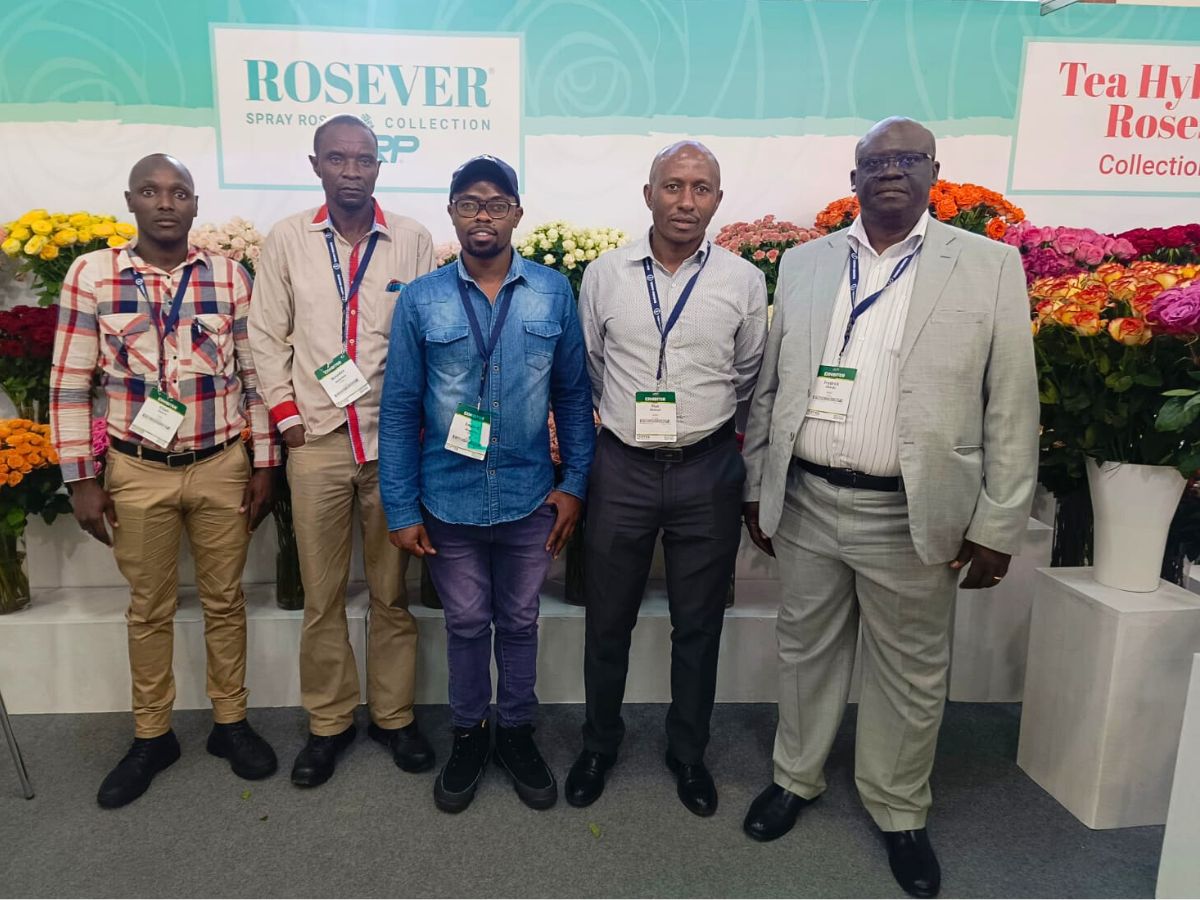
Question 3
Are there any specific challenges or obstacles you’ve faced at work, and how did you overcome them?
"I’ve faced many challenges over the years, but each one has strengthened my approach as a leader and strategist.
Early in my career, I struggled with high-performing varieties that failed in certain farms due to microclimatic or soil differences. To fix that, I developed a varietal evaluation framework combining field trials, historical data, and market analysis. That system now guides farm boards in selecting the right varieties for the right conditions. When I inherited teams with low morale during operational scale-up, I focused on culture first. I introduced structured performance reviews, mentorship, and clear KPIs. Recognizing small wins transformed morale and performance — today, I lead cohesive, motivated teams that execute under pressure.
Sometimes directors expected instant results without understanding biological timelines. To bridge that gap, I turned to data storytelling — using dashboards and scenario models to visualize outcomes. That shift built trust and clarity at board level. Pesticide bans and export standard changes can disrupt everything. I now run a proactive intelligence system that tracks regulations and market signals. It helps the farms I work with pivot early and stay compliant. Moving from Excel to Power BI was a steep learning curve. I dedicated weekly time to self-training, and now I use Power BI for live dashboards that make technical reporting more interactive and insightful.
Each challenge refined me — strengthening my technical knowledge, strategic perspective, and people leadership."

Question 4
What are the threats in the industry, and if so, do you have any solutions for them?
"The industry faces multiple challenges, but each also presents an opportunity to innovate. Erratic rainfall and temperature swings disrupt growing cycles. I believe in investing in climate-resilient varieties, predictive analytics for weather modeling, and efficient irrigation systems. Technology helps turn uncertainty into manageable risk. The cost of fertilizers, pesticides, and energy keeps increasing. My approach has been to benchmark input efficiency across farms, negotiate bulk procurement, and promote integrated pest management to cut chemical dependency.
With stricter pesticide and traceability rules, compliance can be tough. I help teams digitize compliance processes and track regulatory trends so we stay audit-ready and ahead of market shifts. Demand can change overnight. Diversifying channels — from bouquet customization to niche exports — and scenario modeling help cushion these shocks. Maintaining strong CRM systems keeps us close to buyer behavior. The sector needs more skilled agronomists. I prioritize mentorship, create SOPs tailored to each farm, and collaborate with universities and ag-tech startups to strengthen talent pipelines."
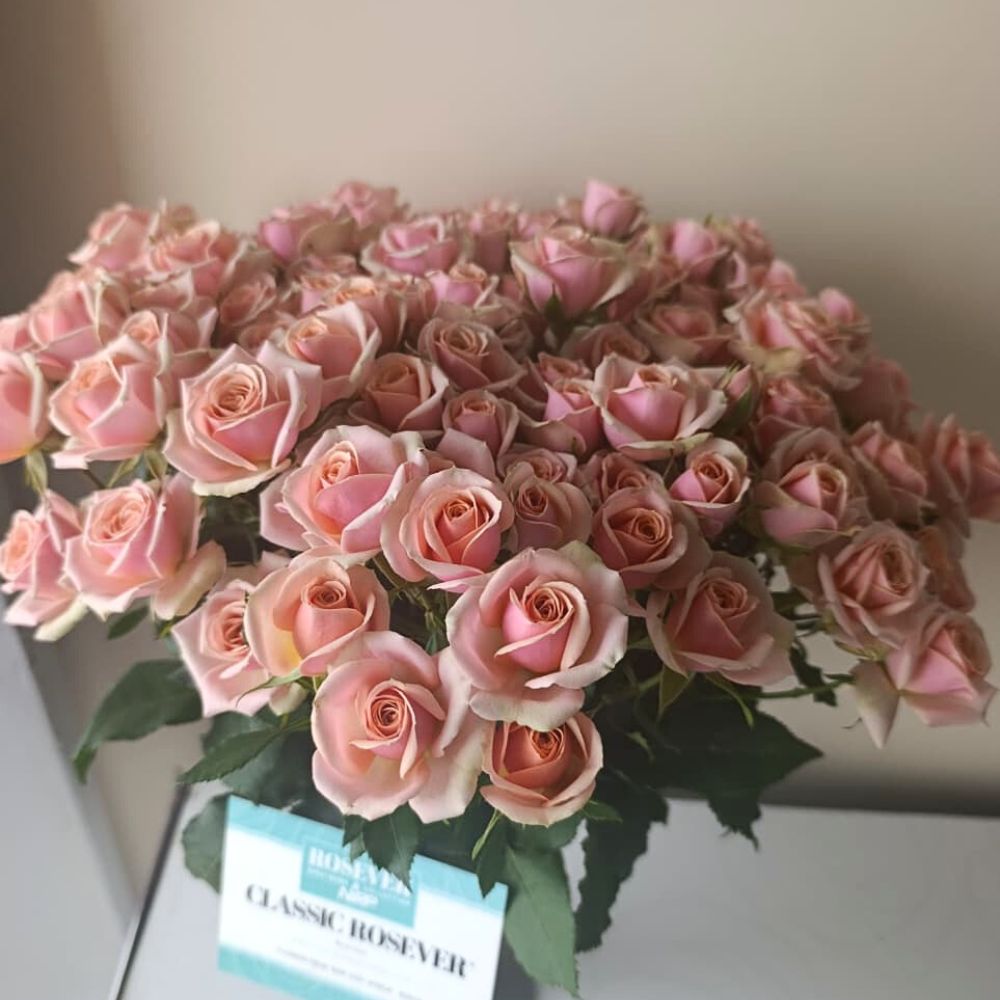
Question 5
How has technology, such as e-commerce platforms or digital marketing, affected your industry? What strategies have you employed to stay competitive?
"E-commerce has transformed how we connect with markets. Platforms like Alibaba and FloraHolland now bridge farms directly with buyers in the Middle East, Europe, and Asia, cutting out intermediaries. They also provide real-time insights into varietal preferences and pricing shifts. I’ve helped farms onboard select varieties onto export-focused e-commerce platforms, ensuring digital catalog standards are met. I’ve also guided the creation of online-ready product bundles and advised teams on integrating CRM data with e-commerce feedback to improve retention and upselling.
Digital marketing has also changed everything — it’s not just about selling stems anymore; it’s about storytelling. Today, high-quality visuals, authenticity, and sustainability narratives drive trust. I’ve led projects to develop varietal profiles and farm stories that resonate with international buyers, and I often collaborate with marketing teams to design seasonal campaigns that align with peak demand cycles.
To stay competitive, I rely on four pillars:
- Data-Driven Decisions: I use Excel and Power BI for analytics and forecasting.
- CRM Optimization: I build and refine systems that automate buyer engagement.
- Digital Compliance: I ensure all documentation meets online traceability standards.
- Content Strategy: I create technical yet relatable materials that double as marketing tools.
Technology hasn’t just modernized the process — it’s accelerated the rhythm. Staying adaptive is key."
Question 6
Who (in or outside the floral industry) is an inspiring example to you? And Why?
"I deeply admire Alessandro Ghione, the CEO of NIRP International. His leadership has been instrumental in elevating rose breeding on a global scale — especially in Kenya, Ecuador, and Europe. At the 2025 Myplant & Garden exhibition in Italy, Alessandro showcased more than 3,000 stems from Kenya and Ecuador, featuring 23 NIRP varieties. His mission to highlight African and Latin American excellence inspired me deeply.
I respect how he aligns breeding science with market aesthetics — balancing agronomic performance with color trends, bud size, and vase life. That’s exactly the intersection where I spend most of my professional energy: technical excellence meeting commercial strategy. He also champions collaboration. By working directly with growers like Bloomingdale and Rift Valley Roses, he empowers farms to innovate and gain visibility. What inspires me most is his vision — he bridges science, storytelling, and global strategy. That’s the kind of leadership I aspire to bring into East African agribusiness."
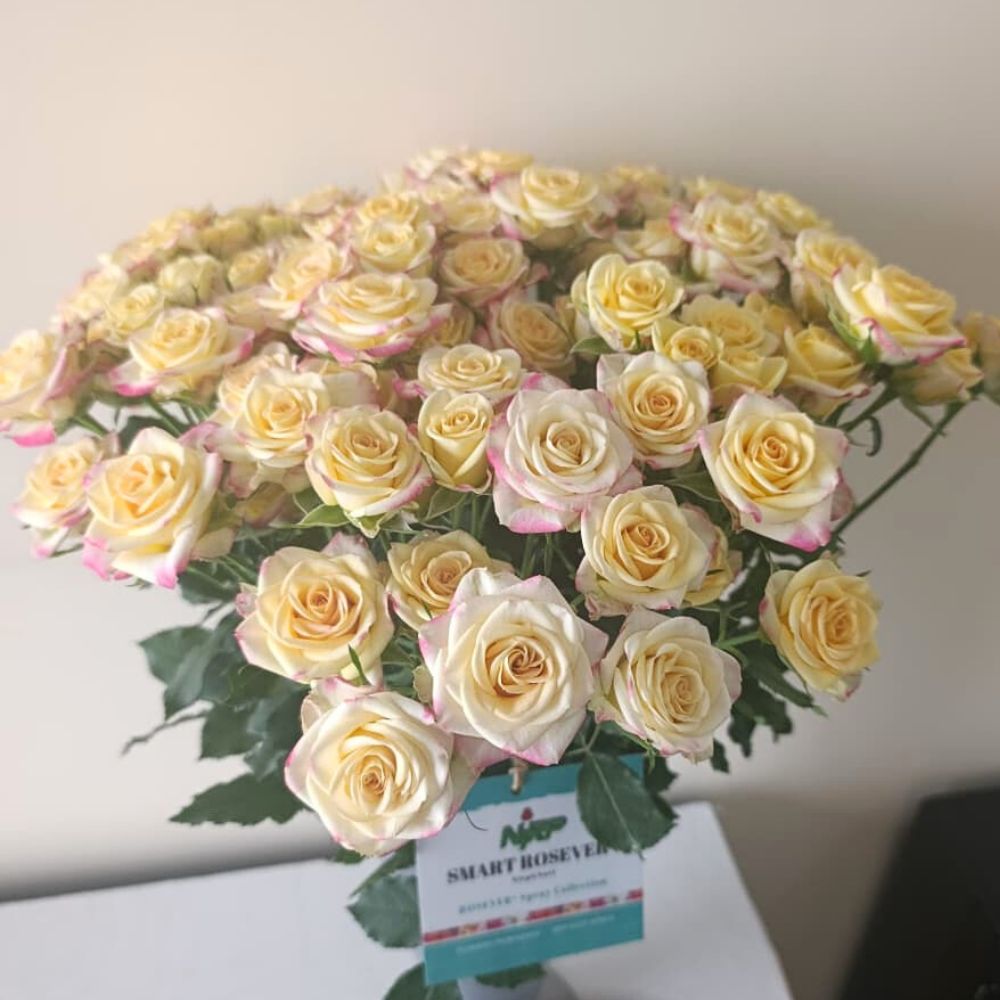
Question 7
How do you handle stress or difficult moments in your life?
"Stress is part of the terrain in agriculture, but I’ve learned to handle it with structure and self-awareness. When problems arise, I break them down into components — whether it’s a delayed export or a propagation issue. I model possible outcomes in Excel or Power BI and focus on what can be controlled. It gives me a sense of order amid uncertainty. I often listen to instrumental or classical music while working. It helps me focus and calm my thoughts. I also find strength in reading the Bible — it re-centers me and reminds me of perspective beyond the moment.
Sometimes, the best therapy is a quiet walk through the propagation area. Observing the plants, the soil, and even the irrigation rhythm brings me peace and clarity. Instead of venting, I reflect. I often turn a stressful experience into a lesson — something I can document or share later with a team member. Many of my technical reports carry insights born out of tough days. When stress stems from uncertainty, I learn my way out of it. Tutorials, webinars, or research articles become tools for growth and confidence."
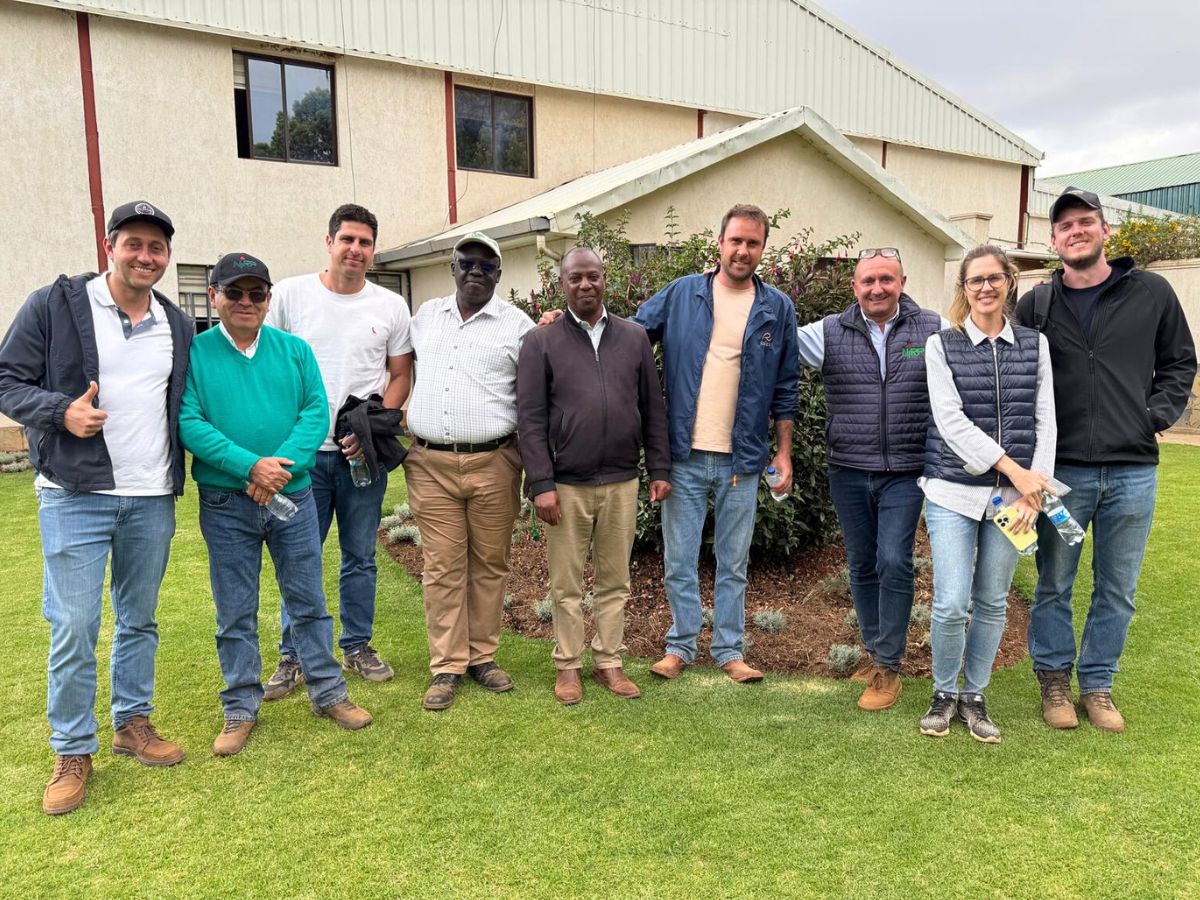
Question 8
What has been the best (floral or non-floral) news for you lately, or of the last year?
"One of the most encouraging things I’ve witnessed recently is the growing global recognition of Kenyan floriculture. Seeing farms like Bloomingdale Roses and Rift Valley Roses represented at the Myplant & Garden 2025 exhibition in Milan — with over 3,000 NIRP stems — was incredibly fulfilling. It felt like validation for the technical rigor and propagation standards we’ve built over the years.
On a personal level, mastering Power BI and refining my valuation frameworks has been a major win. That evolution — from agronomic execution to strategic data influence — represents real growth for me."
Question 9
Which is your favorite flower/plant, and why is it good for you?
"My favorite flower is the ‘Inevitable®’ rose by NIRP International. For me, it’s more than a variety — it’s a philosophy. Its large bud size, strong color, and impressive vase life represent everything I value in varietal excellence. It’s commercially successful in key export markets like Europe and the Middle East, and agronomically, it performs consistently across different farm environments — something I appreciate given my experience with varietal evaluation.
Even the name Inevitable® resonates with me. It speaks to persistence, confidence, and direction — values that define how I approach both leadership and life."

Question 10
What are you doing this weekend?
"After a week filled with varietal evaluations, planning sessions, and data work, my weekends are about grounding myself again. I look forward to spending time with my family — sharing meals, catching up, and attending church together. Sometimes I’ll meet friends or fellow agronomists for casual conversations that somehow always circle back to ideas worth exploring. Those relaxed chats often spark new insights for propagation trials or strategic plans.
And of course, nothing beats a quiet cup of chai surrounded by loved ones. After navigating spreadsheets, reports, and field logistics all week, that’s what I call strategic recovery."

All pictures courtesy of Fred Okinda.

